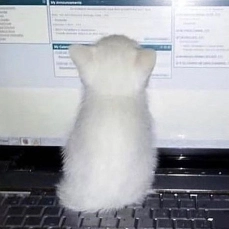Nowadays, most people use password managers (hopefully). However, there are still some passwords that you need to memorize, like master password (for a password manager), phone lock, wifi password, etc.
Security wise, can passphrase reach the strength of a good password without getting so long that it defeats the purpose of even using it?
For my personal life I use a password manager, like most people in this thread. For my master password I really want a secure password (LastPass really reinforced the value of that), so I use a passphrase that is then hashed using an algorithm I can do in my head, so it's a long string of high entropy alphanumeric gibberish that I can remember easily.
At work my IT dept seems to be stuck 10 years in the past, so they have now implemented a policy that our passwords must be at least 16 characters. They keep ignoring my suggestions to get some form of corporate password manager, so I have my work passwords stored in a text file that I'm not allowed to have any form of file encryption so it just sits there in my documents folder. It's probably not going to be the source of our company getting penetrated, but I don't consider it secure.
I do like pass phrases because I find them easy to remember, but my current prime work one is really easy to make typos, so I now use the reveal password button more than I ever have before.
Use diceware to generate a nice long nonsense passphrase, and use that for your password manager master password. Keep it written down somewhere until you are sure you've memorized it.
@Wistful@discuss.tchncs.de Why would the passphrase being long defeat the purpose of using it. That's half the purpose of using passphrases.
Make sure to use made up words or proper nouns and put a pin in an unexpected place. That's an easy way to change it without replacing the whole passphraseI was thinking it would be easy to brute force if just instead of guessing character by character you do word by word...but I guess just adding one special character randomly would make it a non issue.
I use diceware passphrases for any passwords I need to type in (ssh keys, logging in, decrypting my hard drive, master password for password manager, etc). It's the most secure way of setting a password you have to remember and type. Especially since my auto generated passwords contain special characters I wouldn't be able type without just using those ways of entering some escape sequence and typing a unicode sequence.
I use passphrases for frequently used logins and randomly-generated passwords of varying lengths for everything else. I also use a hardware key and/or 2FA for everything that allows it.
I'm conversationally fluent in a few different languages (enough to order food, greet people and ask directions to the shitter, anyway) and I can swear in another half-dozen languages so I tend to mix'n'match my passphrases with different foreign words. Bonus points for accented characters. That's probably not gonna fool a dictionary-based attack but since I live in a (mostly) English-speaking country, it might make it interesting for the English-only speakers to try guessing.
At work, we're held to the outdated policy set by the IT department so it can be difficult to be creative. On top of that, they force a password change whenever someone sneezes so I see a lot of sticky notes on monitors and under keyboards.
Edit: spelling and grammar.





